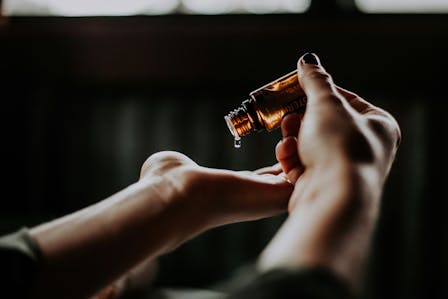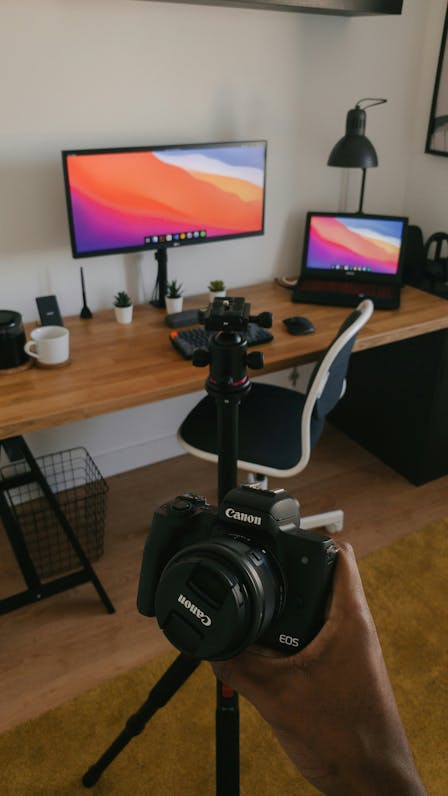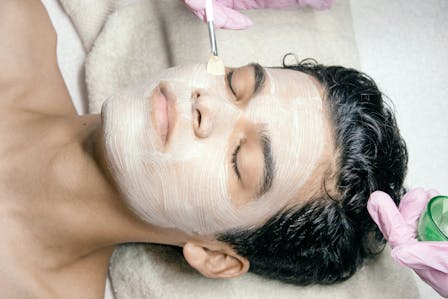Well Up: Psychological Scents, QVC for Gen Z, and Accessible Beauty
Exploring The Scent-Mood Connection
The last few years have seen a slow rise in ‘therapeutic perfumery.’ In 2019, The Nue Co released its first ‘Functional Fragrance,’ while Vyrao began championing ‘neuroscents.’ Now, the space is heating up with Moods, whose founders told WWD in April they want to use aromatherapy to merge “scent and science for serious self care” and “tangible healing therapy.” While both brands are capitalizing on the fervent fragrance boom, they’re carving into a growing subset of consumers who expect scientific benefits from their traditional cosmetic or wellness products.
In 2024, Charlotte Tilbury released a debut fragrance line of ‘emotion-boosting scents;’ created with the help of proprietary AI from the International Flavors & Fragrance’s (IFF) "Science of Wellness" program. The ‘Scentcube’ technology was designed to analyze ingredients and determine their emotional and sensory benefits.
So as technology advances, we can expect to see offerings evolve — but Goop offers an important distinction. In the April 2025 article, How Neuroscience Is Shaping the Future of Mood-Boosting Scents author Pia Velasco explains, “It’s important to note that while some brands work with fragrance houses to run neurological tests that measure brain activity in reaction to certain scents, and hence rely on data-backed claims, most brands lean into marketing and claim their fragrances can evoke feelings by way of scent association.”
As beauty consumers continue to prioritize scientific backing, the category is shifting closer towards the medical realm. (If you don't believe us, look no further than Estee Lauder, who in February 2025 announced that they're partnering with biotechnology and pharmaceutical company Serpin Pharma for new skincare and beauty product ingredients). Now, these moves from scent brands indicate that the fragrance industry may be following suit — and could turn fragrance into a tool for wellbeing and emotional management.

Livestream Shopping Goes Mainstream
On April 2, QVC Group announced a strategic agreement to host 24/7 live shopping streams on TikTok.
QVC first launched on TikTok Shop in August 2024 — notably two months after TikTok hosted its first $1 million shopping livestream with beauty brand Canvas Beauty. Since then, over 74,000 TikTok creators have featured QVC items on the platform.
In its press release, QVC notes that “since TikTok Shop launched in the US in 2023, the number of people shopping on the platform each month has nearly tripled.”
Business of Fashion reported on the rise of live streaming beyond TTS, noting “TalkShopLive” which “helps brands stream shoppable video content across their own sites, on social media sites like Instagram and Facebook and with retailers like Amazon and Walmart” and “Whatnot” which allows independent sellers to generate sales by livestreaming on its platform.
Moreover, BoF explains that, “What makes live shopping a compelling tool for brands is the opportunity to communicate directly with their audiences.” As consumers demand more personalized product information from brands, live streaming gives brands the opportunity to answer questions more conversationally, and immediately, than ever before.

Beauty Turns Its Focus to Accessibility
At launch, Tilt Beauty was featured everywhere from Hypebae to Marie Claire to WWD. Founded by 21 year old Aerin Glazer, Tilt is described as a “a makeup brand designed for people with limited mobility.” Glazer was diagnosed with arthritis at 13, and explained she “wanted to serve a market that was used to going to the disability aisle and modifying their products and trying to do something that made them feel better.” She focused on building and fostering a strong community, while simultaneously earning awards from the National Arthritis Foundation and National Braille Institute.
In March, Glossy predicted “The Next Phase of Beauty Inclusivity is Accessibility,” pointing to growing stats from the 2025 SeeMe Inclusivity Index for Beauty which stated, “22% of beauty brands are designing products with disability in mind, compared to 11% in 2023.” Meanwhile, in April, the Estée Lauder Companies were awarded the Innovation Award at the 2025 World 50 Impact Awards for its Voice-enabled Makeup Assistant; a mobile app that helps visually impaired users apply makeup independently.
As competitive solutions emerge consumers will have access to better and better products, and it will be interesting to see how marketplaces decide to position them, and how their benefits will trickle into other areas in beauty, health and wellness.
Other noteworthy headlines:
- Vogue predicts: The Next Big Thing in Wellness Tourism? Your Brain
- Take a detailed look at exactly why skin care sales are surging on Amazon
- In India, A New Era of Men’s Skincare is brewing
- Everything you need to know about trending Exosome Skin Care
